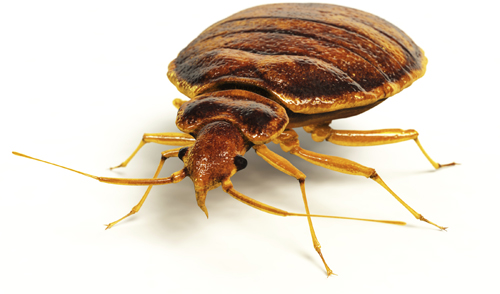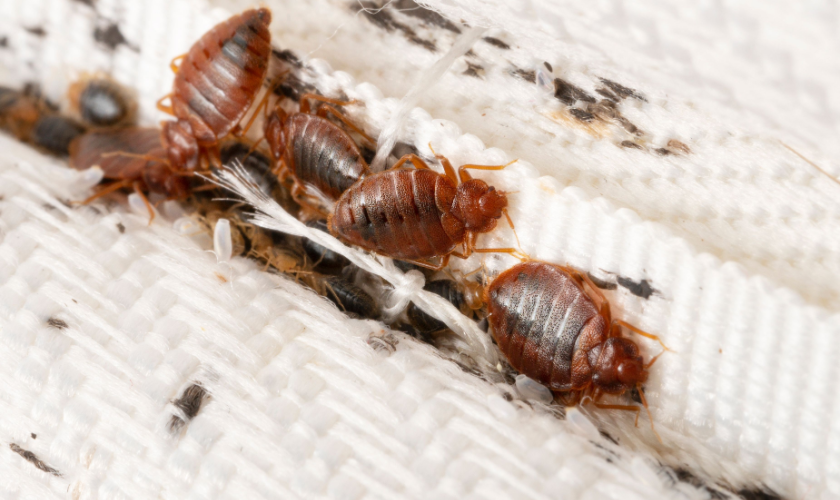Professional Kings Pest Control Services Cincinnati OH
Professional Kings Pest Control Services Cincinnati OH
Blog Article
Kinds of Parasite Control: Which Approach Is Right for Your Problem?
When encountered with an insect infestation, the option of an ideal approach for bug control is important in properly taking care of the circumstance. By checking out the numerous types of pest control approaches offered, individuals can make informed decisions customized to their distinct circumstances, guaranteeing a much more sustainable and efficient result in parasite removal.
Chemical Insect Control
Chemical insect control entails using synthetic or naturally acquired chemicals to handle and eradicate pest populations successfully. This technique is generally made use of in agriculture, forestry, and residential settings to combat a variety of insects, including rodents, pests, and weeds. Using chemical pesticides can offer quick and targeted solutions to pest invasions, making it a preferred selection for several people and companies.
Among the crucial advantages of chemical insect control is its capability to swiftly remove insects, reducing the risk of damage to crops, residential or commercial property, and human health. By utilizing certain chemicals that target specific parasites, this technique can properly control problems while minimizing damage to advantageous microorganisms and the atmosphere when applied appropriately.
However, using chemical pest control also elevates issues concerning possible negative impacts on non-target types, water resources, and human health and wellness. It is essential to adhere to safety standards, apply chemicals properly, and take into consideration different pest control methods to reduce these risks and guarantee lasting parasite management practices.
Biological Pest Control
Biological insect control, likewise referred to as biocontrol, uses living microorganisms to take care of and lower parasite populaces naturally. This approach uses the power of nature to manage bugs without the need for synthetic chemicals. Biocontrol can involve the intro of all-natural enemies of the bug varieties, such as bloodsuckers, killers, or virus, to suppress insect populaces. By using the bug's natural predators or pathogens, biological bug control offers a lasting and eco friendly solution to pest administration.

Mechanical Pest Control
Making use of hands-on and physical techniques to handle insect populaces, mechanical parasite control uses an alternative method that does not depend on making use of living organisms or synthetic chemicals. This method includes using barriers, catches, or various other devices to literally discourage or eliminate parasites. By blocking parasite entrance points or establishing catches to capture them, mechanical bug control can efficiently minimize invasions without introducing chemicals right into the atmosphere.
One common example of mechanical bug control is the usage of mesh displays on doors and windows to avoid insects from getting in buildings. This basic yet effective approach works as a physical barrier, keeping bugs out while permitting correct air flow. Additionally, devices like mousetraps, fly swatters, and ultrasonic repellents fall under the mechanical parasite control category.
While mechanical bug control approaches can be labor-intensive and need regular surveillance and upkeep, they supply a ecologically friendly and lasting remedy for handling parasite problems. By integrating different mechanical strategies, residential or commercial property proprietors can produce an extensive parasite control technique that lessens reliance on chemical pesticides.
Physical Insect Control

Some common physical insect control methods consist of making use of obstacles such as screens or nets to avoid pest access, catches to record and eliminate pests, and hand-picking to literally remove pests from plants or structures. In addition, techniques like warmth treatments can be made use of to manage parasites like bed pests by elevating the temperature level to levels that are dangerous to the insects.
Physical parasite control is particularly helpful in integrated insect administration (IPM) techniques, where numerous insect control approaches are combined for reliable bug management while lessening using chemicals. By using physical bug control techniques, individuals can successfully resolve insect invasions with marginal ecological effect.
Integrated Insect Management
When executing physical insect control methods as component of insect administration strategies, Integrated Pest Administration (IPM) becomes a detailed method that leverages various methods to effectively manage pest populations. IPM concentrates on long-term prevention of pests with a combination of biological, social, physical, and chemical devices tailored to particular insect issues. By incorporating numerous control tactics, IPM intends to reduce the threats linked with parasites while likewise reducing dependence on chemical solutions.
One trick element of IPM is the focus on surveillance and evaluating pest populaces to determine one of the most appropriate control methods. This positive technique enables very early intervention and targeted techniques, resulting in extra efficient parasite management. Furthermore, IPM advertises ecologically pleasant techniques by focusing on non-chemical control methods and only utilizing chemicals as a last hope.
Verdict

By making use of the insect's natural predators or microorganisms, organic parasite control offers a lasting and environmentally friendly option to pest monitoring. - Kings pest control cincinnati oh
Utilizing manual and physical methods to manage pest populations, mechanical insect control provides an alternate technique that does not depend on the usage of living microorganisms or artificial chemicals.An effective method to taking care of parasite populations without depending on chemical or organic approaches involves the use of physical bug control strategies.When executing physical bug control approaches as component of parasite monitoring methods, Integrated Pest Monitoring (IPM) arises as a thorough strategy that leverages numerous methods to efficiently control pest populations. Chemical parasite control includes the usage of pesticides, organic pest control utilizes natural predators, mechanical pest control involves physical obstacles, physical parasite control includes trapping or getting rid of insects, and incorporated parasite monitoring combines several methods for a holistic technique to pest control.
Report this page